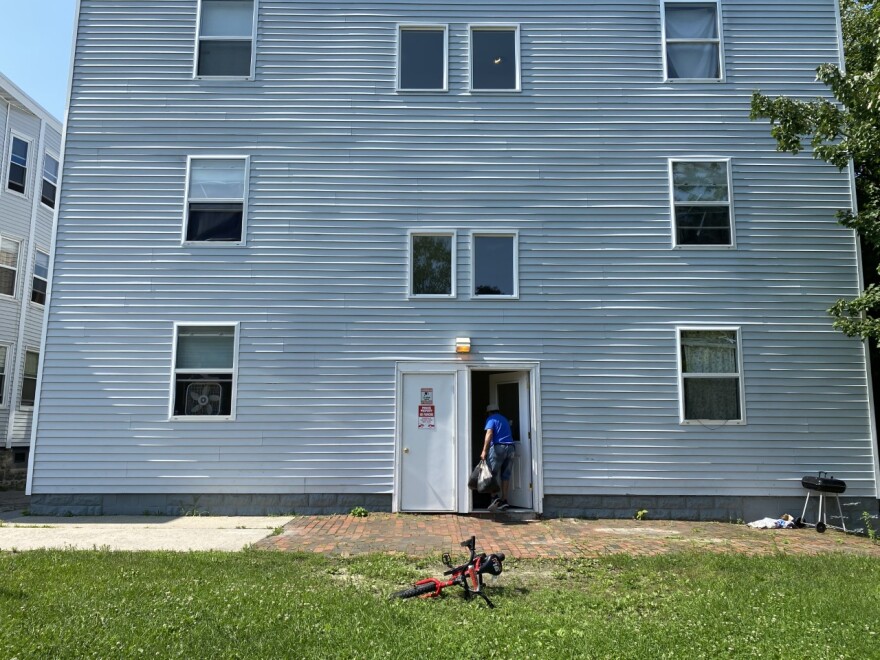At about 9 a.m. on a recent Thursday morning, Rui Pires was already well into his food delivery route as he knocked on the door of a house on Washington Avenue in Portland.
Pires moved quickly, handing bags of green beans, lettuce, dried fish, flour, and diapers to a young boy who opened the door.

Then he shouted goodbye to the parents, jogged back to the white van loaded to the brim with boxes of food and supplies, and headed off to the next house.
In the early days of the pandemic, the Angolan Community of Maine launched this mobile food assistance service, which now delivers pantry staples and childcare supplies to upwards of 120 Angolan families, from Biddeford to Auburn, every two weeks. Most of the food is donated through Wayside Food Programs, with some culturally specific items, like the salted fish, purchased through a separate grant.
Last Thursday, the route included 90 households in Portland, Westbrook, South Portland, and Biddeford. Pires said he’d be on the road until about nine or ten at night, but sometimes it's even later than that - either way, he said, he’s got to deliver all the food.
Pires is still working on his English, so on the day I joined him for his delivery run we spoke in Portuguese, one of Angola’s many languages.

Pires is a central pillar of this time-intensive volunteer effort. It’s a community service he’s been doing four days a month for about a year, to the point where he has the entire route memorized.
Despite the long hours, he approached the day with a sense of humor, and was quick to joke with the families along the route, as he called each one to say he was pulling up to their door. Pires said he’s become friends with so many people in the community through this work that sometimes he’s overwhelmed with invitations to weddings, baptisms, and parties.
Like many people in Maine’s Angolan community, Pires arrived in 2019 as an asylum seeker. He came with his youngest son, Rumeri, who is now ten years old and was helping out with the delivery run. Pires' wife and two elder sons, meanwhile, remain at home in Luanda, the capital city of Angola. Pires said he hopes to bring them to U.S. someday.
First, he said, he needed to find a job. He hadn’t been able to look for one until now, because asylum seekers cannot apply for a work permit until a year after they have filed their asylum application.
Pires said he recently got his work permit and that once the last of his documents were in order, he would start sending in job applications.

Unfortunately, he said, getting a fulltime job might spell the end of his involvement in the food deliveries – he has a hard time imagining that a future employer would give him four days off each month for this volunteer effort. And, so far, no one else has stepped up to take his place.
For now, though, the route continues. As we picked our way slowly through Portland’s Bayside neighborhood, Pires pointed out the family shelter where he lived with Rumeri for about five months when they first arrived.
We pulled up to an apartment building a couple blocks away from the shelter. As Pires bagged up some green beans, he sent Rumeri to knock on the door of the next house.
He said leaving behind his life in Luanda and trying to re-establish himself in Portland while living at a crowded shelter was a stressful experience.

Now, though, as he stood on the street, loading bags of food for families that had passed through many of the same challenges that he had, Pires took a moment to reflect.
Speaking in the careful tone of someone determined to frame a difficult situation in a positive light, Pires said he and his son were abetter off for having weathered hard times.
Life, he said, using a Portuguese idiom, isn’t always a sea of roses.
Ari Snider is a Report for America corps member.



